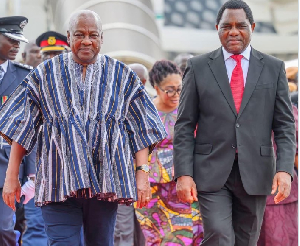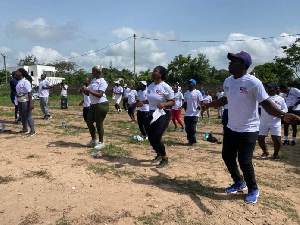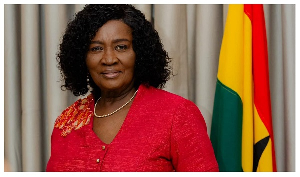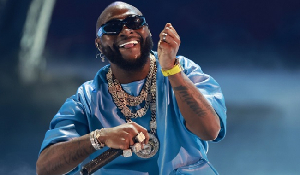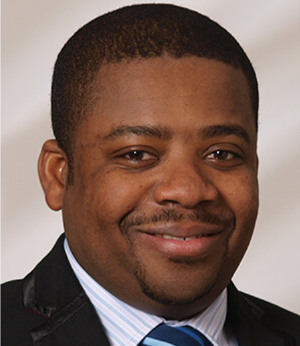When in 1958, Chinua Achebe wrote that when a child washes his hands well, he eats with elders, participatory democracy in Africa was perhaps, as unpromising as the life of Unoka, Okwonkwo’s father. But nearly fifty years down the line, things have not fallen apart, as Achebe titled his bestseller. Of course, the political centre in most parts of Africa cannot hold, and the gyre is widening, but there are a few success stories in our democratic development. Today, we have punched past our Ghanaian reserve, to recognize young talent as the able tools we need to chisel out a future for the continent.
Two young talents in the ruling NPP appear to have washed their hands well enough to lead the West African country. Former General Secretary Daniel Botwe and former government spokesperson Kwabena Agyapong are set to leave footprints in the heart of tradition as quasi-prodigal young darlings, whose leadership bids were veritable political statements. Indeed, the announcement that the two gentlemen had joined the NNP flagbeareship race did not excite us. We were more interested in the considerations that may have informed their decision to lead an old tradition, than what they had to offer.
If there was reason to believe that their bids had not been well thought through, that suspicion was whittled away by the conviction that seemed to have backed the premium they placed on the office of the president. That is the statement these two gentlemen stand for: that audacity that saw Okwonkwo graduate from a snoring owner of yam tubers to the owner of titles in his clan. It wasn’t exactly the confrontational expression of an ‘I can also do it’ principle; it was the principle that dispelled that traditional thinking that those who have washed their hands well in African politics must be septuagenarians.
Leadership requires such a subtle range of qualities that are easy to define, but difficult to describe. Charisma, foresight, intellectual aptitude, looks, character, ‘personality’ etc are qualities we look for when deciding on a leader. Sometimes, a sympathy attracting predicament of a person, such as his brilliant children’s autism or his war hero father’s amputated leg, could impress us to invest our trust in them. Does age play any serious role in gauging how these qualities express themselves? Is a person old enough because he has seen many harmattans, or because his thoughts cut across the dryness of the harmattan? Is he old enough because he founded a tradition, or because he worked the tradition? Did the people of Senegal reelect President Abdoulaye Wade because of his old age, or the man’s thoughts are active enough for the role?
Apart from their predicament that neither Kwabena nor Dan has authored a bestseller, their age has become a factor. They have neither grey hairs nor grandchildren; they are just as old as Ghana@50. You would think they should be completing the final phases of a project than hurrying to supervise it. Are they experienced enough to handle the job?
Who cares about age these days anyway? Britain’s Conservative party is presently led by 40 year David Cameron, an intelligent bloke who was the brain of the predecessor, Michael Howard. He penned the party’s manifesto for the predecessor and championed many policy issues. He impressed congress with an electrifying speech, which saw the much older and congress favorite David Davis, lose to the lad. Today, he has refined Thatcherism and given the conservative a modern youthful face. See? America’s vice president, Dick Cheney, was 34 when he was appointed to do what good old Kufour buddy Mpiani is doing, as Chief of Staff. Chechnya is presently governed by 30 year old Ramzan Kadyrov, son of former leader Akhmad Kadyrov, who was assassinated in 2004. Joseph Kabila is leading Mobutu’s Congo and Barack Obama, 41, is seeking the leadership of the Democrats in the USA. Politics is no more about grey pubic hairs.
Well, how would a Dan Botwe presidency fare with Ghanaians? Before he was ‘outshuffled’ as Information Minister, there was talk that he was not in the president’s good books. He had, we heard, opposed the president’s nominee for party chairman and started talking principle, instead of supporting his principal. When he was asked whether his information portfolio was a decoy the president would use to fish him out eventually, he was loquaciously philosophical: politicians are students of Machiavelli; the end justifies the means. In the end, he was informed that his information portfolio had better been a box under a presidential Yes man. The next thing we heard was that he is one of the guys seeking his party’s leadership.
It doesn’t sound like a prologue to the misadventures of a character in an apprenticeship novel, but it doesn’t also strike you as the heroics of a Shakespearean Coriolanus, who is powerful enough to single-handedly conquer a city. You know you are dealing with somebody who knows how the nerves congregate to produce the right combinations in a typical political masterplan. His background as a computer programmer seemed to have served him well. He comes across as a guy who will flex a muscle and frustrate tradition if his interest will not be served. You see in him an operations man; somebody who can do the job, with or without expertise. Yet, after the job is done, you want to find out if another person would have done it better. He is not very young, 50 or thereabouts, yet there is reason not to support his membership in the assembly of the 50s.
Mr Botwe’s main strength seems to lie in that ‘I can also do it’ hardworking attitude that made him a darling at CocoBod. If his tenure as party general secretary was not excellent, at least, you know he didn’t disappoint anybody. You would normally not associate him with an accomplished orator, but you can trust his ability to speak his thoughts forthrightly. When he tells you he can do the job, his confidence is overpowering, and you know you can trust him. Yet, you wonder if you should sympathise with him for bothering at all. He is a people’s man in a way, but you know Kwame Pianim is spot on.
His weakness flows from that same ‘I can also do it’ attitude. Politics is sometimes not about what you can do; it is about what the people want you to do. If he was a woman, you would like to tell her I don’t want to commit to you, but it doesn’t mean that I don’t love you. But Dan is a man, and you know that he knows his politics, so you have reason to allow him to test the waters, to see whether his people love his politics.
What about Mr Kwabena Agyapong? Instantly, you know you cannot pair the two youngsters for the top job. They will do well in a business partnership than anything presidential. When he replaced my sweetheart Elizabeth Ohene as government spokesperson, folks were impressed by how he transported those Sports Highlights dribbles to the political turf. Lizzy did not do a particularly bad job, but Kwabena’s refreshing ‘get on with the job’ approach made the engineer suitable for a spin doctor. So when he resigned in the middle of the spinning wheel, it was as surprising as the day we first heard the news that he wants his boss’ job. Yet, we know he didn’t quit his post to prepare for the top job, so we put it down as an event that was perhaps in the womb of time, waiting for a delivery. Even so, there was no delivery; this was a willful caesarean.
Kwabena’s story isn’t a rarity; it is one of those tales you would want for an after dinner gossip. It doesn’t sound intriguing. Even if there is intrigue, you can afford to let it melt away with the routines of daily existence. But politics is not just a routine; there is often strategy behind the routine. How does President Kwabena Agyapong sound in the ears?
If a young person keeps an unusual ‘guy name’ like Karlahari, for that was Kwabena’s alias at UST, you know he could do unusual things. Mine was Apezy, but I haven’t become an apese yet. Kwabena looks like a bloke you would associate with everything ambitious, but you would beg the heavens for a confirmation when an apparition reveals it. He is a good-looking gentleman with a ‘women love me but I am not a Casanova’ kind of swagger. He doesn’t come across as an arrogant bloke, but you know he could well be sitting on a dynamite of arrogance that could explode if he pushes a button. When he was the face of Sports Highlight, he did fine. But you knew you could stop Kwabena Yeboah on the streets and ask him if he was the guy on TV yesterday. With Agyapong, you could, but you would be very happy because he gave you a smile in addition.
If he was fighting the presidential race in the west, his predicament as the son of a murdered judge would have helped his course very much. He won our sympathy when he was fighting the Rawllings’. It wasn’t difficult to picture a younger Kwabena when his father was ripped across the family dinning table for the gallows.His strength of character showed during those years. Kwabena has not made this a tool. It was the public’s disgust at the killing of the three high court judges that bought him our sympathies rather than the fact of his bereavement. Even so, you have very little reason not to sympathise with him. But you wonder whether you can go the extra mile with him as president.
His main strength lies in that ‘get on with the job’ approach. As spokesperson, you could trust him when he said the president did not sire twins with ‘that woman’. If you didn’t trust him, at least, you found him convincing. You knew you would come back to the issue but you went home wondering why he said what he said. That is PR. Call it bluster.
His weakness, methinks, is the persona he seems to have cut for himself as an exclusive member of the suffering masses. He is not regal, yet you can’t ask him to get into the gutter with you. People say he is arrogant. Well, I don’t know. But I know he was the Accra representative of Asante Kotoko, when fabulous was really fabulous: When you kill a thousand, a thousand more confront you. Let’s see how he confronts the thousands seeking to lead the NNP.



